
According to 1.3 ADR 2025

English, German

∿ 45 min
Description
Pedelecs and e-bikes have become an integral part of the bicycle world. More and more bicycle dealers are stumbling over a new problem. The lithium-ion batteries that power the bicycle require a great deal of expertise. How do I store them, how do I handle them, how do I transport them and what do I do with a defective battery?
As soon as you put pedelecs or e-bikes on sale, dangerous goods legislation requires instruction. With our online course, specially developed for bicycle dealers, you will receive the necessary knowledge and act in a legally compliant!
Legal basis
The instruction takes place in accordance with 1.3 ADR 2025.
Target group
All persons who transport pedelecs, e-bikes, e-scooters, etc. or bring them into the sales must be instructed according to the dangerous goods law.
Course content
- Obligations according to ADR
- Dangerous good ‘Lithium’
- Necessary documents
- Overview of classes
- Focus on Class 9
- Important UN numbers
- Packaging, labeling, and marking
- Transport documents, including exemption (1000-point rule)
- Shipping, including checklist
- Defective / damaged batteries
- Disposal / Recycling
- Storage guidelines
- Final test with certificate according to 1.3 ADR
Insights into the course
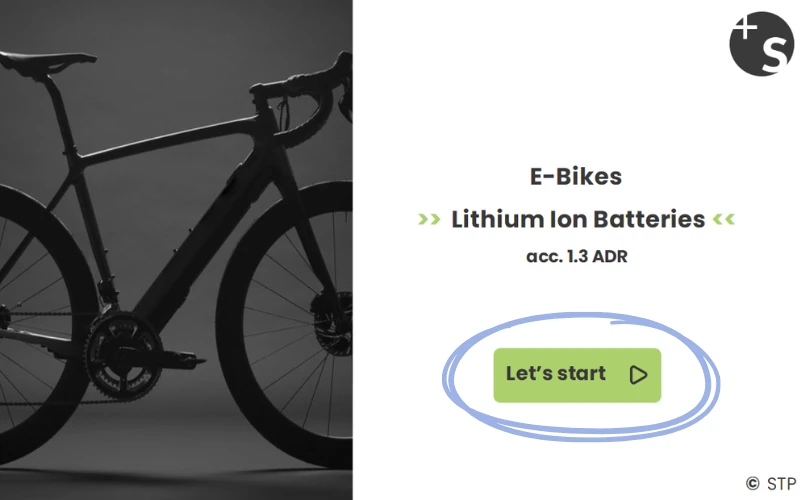
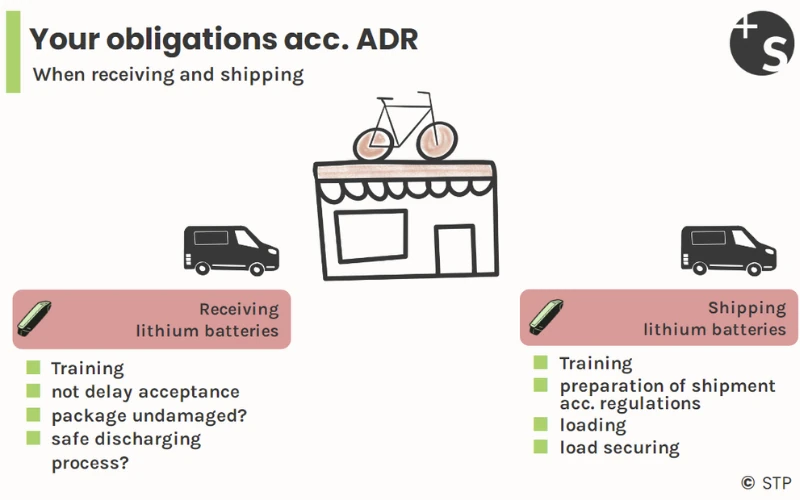
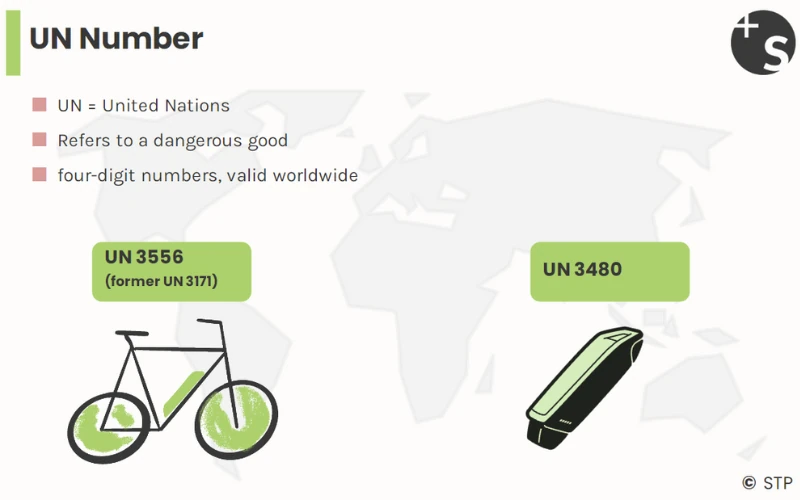
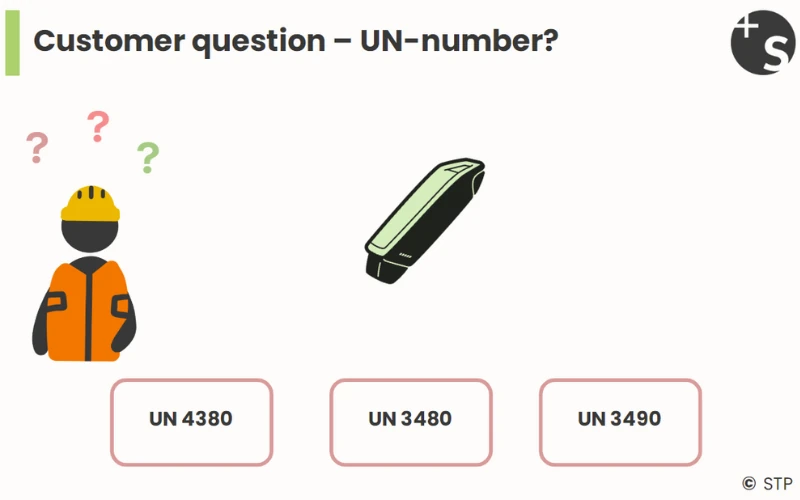
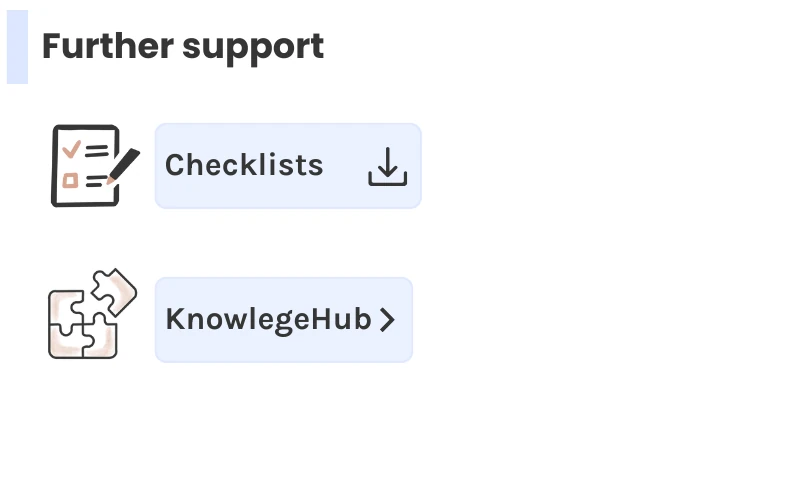
Your Certificate
After you have worked through all modules and exercises, you will receive a certificate according to chapter 1.3 ADR.
Validity
The content of this online training corresponds to the actuality of the ADR 2025. This certificate can be provided to the competent authority upon request. Please note that regular refresher courses are necessary in case of changes in the regulations. We recommend repeating the course every 2 years.

Your legally secure certificate.
Access time
The access to the learning platform is unlimited. You can access the booked course for 12 months, complete it and use it as a reference work. In addition, you will receive all forms and checklists for download.
Technical requirements
The online training is designed for all common devices.

PC/Laptop

Tablet

Smartphone via app
How it works
- Purchase/registration can be found above.
- You register yourself and/or your colleagues.
- Payment by invoice / Paypal / credit card / direct debit.
- Everyone receives the access data and the link to the SAFETY learning platform.
- Everyone completes the online training, independent of time and location and at their own pace.
- Upon successful completion, everyone receives a legally valid certificate. 🙂
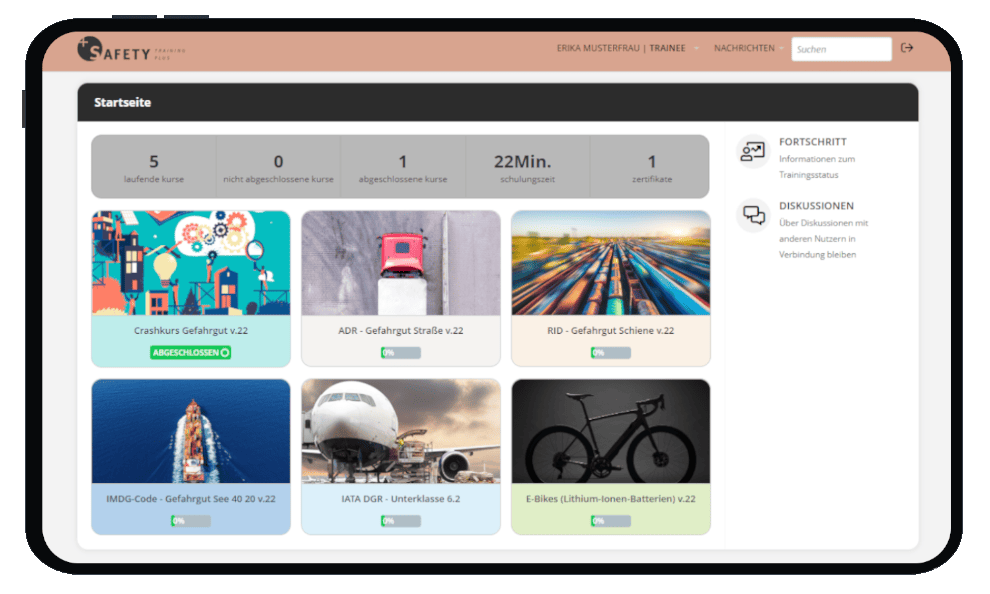
FAQ – E-Bike battery as a dangerous good
All persons involved in the transportation of dangerous goods require instruction in accordance with 1.3 ADR. As the lithium batteries required for e-bikes are classified as dangerous goods, you require instruction. Instruction in accordance with dangerous goods legislation is mandatory and can be checked by the competent authority, e.g. in the course of monitoring or an incident.
The energy stored in a lithium-ion battery (=rechargeable battery) can be released through improper use, damage, overcharging or due to a structural defect. This can lead to short circuits, fires and, in extreme cases, explosions. Due to these properties, rechargeable batteries are classified as dangerous goods – as UN 3480 lithium-ion batteries.

